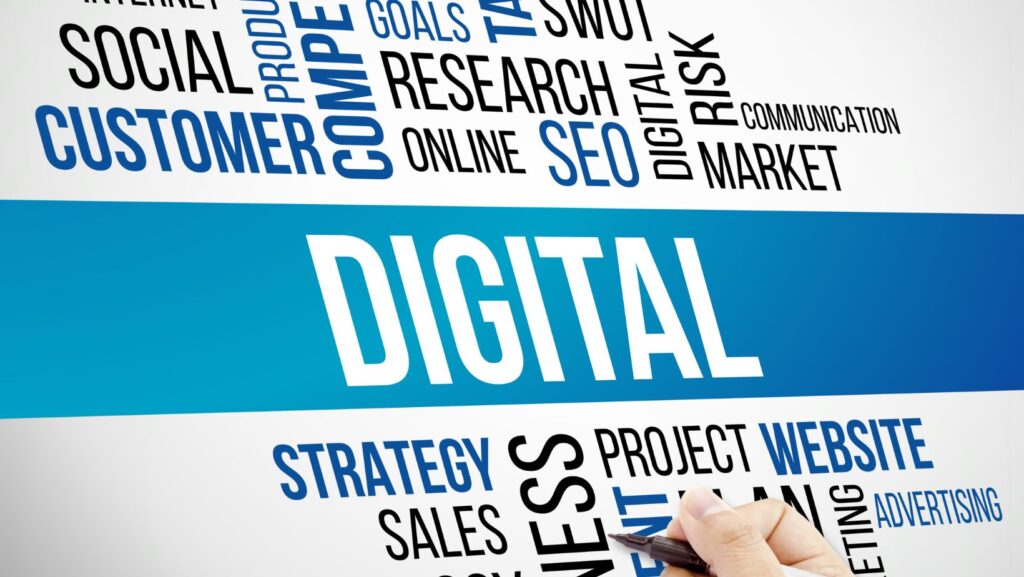Internet marketing uses the Internet and its related technologies to promote the sale of goods as well as the provision of services to Internet users. It gives business people the opportunity to access, communicate with, and influence the purchasing power of potential customers on the World Wide Web.
Key components of Internet marketing include:
Search Engine Optimization (SEO):
SEO mainly involves a method of king web pages and content to improve page rankings on search engine results such as Google. This raises awareness and makes the website and its contents easily accessible.
Content Marketing:
Content marketing basically entails developing and sharing helpful, pertinent, and steady material to capture and engage customers.
Social Media Marketing:
Different from social media advertising, social media marketing involves the creation of social media profiles and the promotion of brands, products, and services through social networks.
Email Marketing:
Electronic mail marketing involves the use of e-mail to communicate business information to customers and to advertise products.
Pay-Per-Click (PPC) Advertising:
PPC advertising allows businesses to target users as they conduct their search with references to products offered in the market. Companies buy slots to place advertisements, and they are only charged when the advertisements are clicked.
Affiliate Marketing:
Mostly, affiliate marketing involves the identification of influencers and publishers who can advertise products to their audience and receive a commission from the sales outcomes.
Influencer Marketing:
Influencer marketing makes use of social media influencers to promote a certain product to their audience.
Video Marketing:
Video marketing is also involved in the creation and dissemination of making and marketing videos to inform users about affiliate products.
Mobile Marketing:
Mobile marketing communications continue to reach consumers through portable devices and in modified formats for smaller screens.
Web Analytics:
Digital analytics also evaluates the effectiveness and success of marketing campaigns by use of KPIs such as traffic, conversion, and ROI.
The Importance of Internet Marketing
Internet marketing delivers a variety of benefits that give businesses a vital competitive edge, including:
Global Reach:
Internet marketing thus gives broad coverage, erasing geographical limitations and reaching out to audiences across the world.
Targeted Audience:
Digital marketing and the use of electronic media enable precise and individualized communication with the target customer groups that are adjusted to their needs.
Cost-Effectiveness:
Internet marketing is an adaptive strategy to sell products to more consumers without involving a large amount of advertising.
Measurable Results:
The quantitative data accumulation and measurements enable the overall evaluation of all the marketing campaigns to increase their effectiveness.
Brand Building:
Web marketing is vital for creating and building brands by constantly communicating with the marketplace and consumers using appealing graphical and audio images.
Increased Sales:
The range of Internet marketing tactics helps gather leads and make sales.
Improved Customer Service:
Good customer relations and satisfaction are achieved with the help of digital tools based on real-time communication.
Competitive Advantage:
A sustained focus on internet marketing and an effective online presence provide a competitive advantage over competitors who may be slow on the uptake.
Tips For Strategic Internet Marketing:
To grow their digital presence, businesses must develop integrated strategies spanning core tactics like:
Search Engine Optimization (SEO):
Organic traffic, therefore, continues to be important for website exposure on search engines and from traffic that has been filtered through the search engines.
Content Marketing:
High-quality, creative and professional content is at the essence of websites aimed at attracting and converting website visitors into customers.
Social Media Marketing:
The overall goal of the project is the operation of active accounts on the most popular social networks for brand reputation, user interaction, and traffic attraction.
Email Marketing:
Email marketing requires a reinvention through new designs, messages and integration with automation workflows.
Pay-Per-Click (PPC) Advertising:
PPC ads can add value to other approaches by aiding in reaching the buyers when they are ready to make a purchase.
Choosing the Finest Internet Marketing Experts
As the internet marketing channels advance, establishing good relations with the right experts becomes very important.

Some tips to hire internet marketing experts:
Define Your Needs and Goals:
This should be achieved by drawing clear marketing goals, objectives and targets and by defining the required skills, services and budgets.
Determine Your Budget:
Determine the proper makeup of your Internet marketing budget per specific marketing efforts and consultants.
Look for Experience and Specialization:
Seek professionals who have developed positive references with domains similar to the ones you have in your SEO plans or paid ads, content creation and so on.
Check for Case Studies and Testimonials:
Compare consultants and agencies by the demos of their previous work and feedback from clients.
Ask for References:
Using references while speaking offers confidence in working relations.
Assess Communication and Reporting:
Check involvement and capacity to deliver timely and effective reports backed by evident analysis.
Consider Cultural Fit:
Perceive compatibility with the inflows and outflows of work processes, your values, and your modes of communication.
Utilize Online Platforms and Resources:
Search for specialized marketers through internet directories, communities and business networks.
Ask for a Proposal and Contract:
Expect a comprehensive description of the project together with a signed contract to protect your rights.
The assessment of the effectiveness of Internet marketing
Measurement is critical to regularly improving plans and methods and proving actual business value derived from Internet marketing efforts.

Key performance indicators (KPIs) to track include:
Website Traffic:
Understand overall visitor traffic patterns, where they are coming from, how long they stay, and what they are doing that suggests interaction.
Conversions:
Track the number of sales conducted alongside that of leads and subscribers created.
Leads Generated:
Assess the quantity and quality of visitor contact details collected.
Return on Investment (ROI):
Determine the relationship between profit earned and the cost of generating those profits.
Customer Acquisition Cost (CAC):
The next ratio is obtained by finding out the average expense incurred by you each time a new customer is made.
Customer Lifetime Value (CLTV):
Assess the future earning capability of customers in the current environment.
Brand Awareness:
Ask for surveys and search on the internet to establish the number of people reached and their attitude towards the issue.
Customer Engagement:
Measure activities and engagement, interaction or response rates to activities, sharing, and level of brand loyalty.
Introducing the Future of Internet Marketing
Internet marketing, especially the four concerned, very often needs rapid evolution. Staying up-to-date with major developments can drive future success:
Artificial Intelligence (AI):
AI and machine learning will make recommendations for advertisement placement and content generation more efficient and accurate.
The Metaverse:
Virtual, augmented, and mixed-reality spaces could become new spaces to market brands and products in.
Increased Focus on Data Privacy:
Tougher laws will ensure ethical collection and use of data as a requirement.
The Rise of Micro-Influencers:
Even those people with ordinary networks consisting of people with similar interests may turn into more powerful promoters of specific brands.
Omnichannel Marketing:
Online and offline advertising strategies for loans will help to make overall communication with customers easier.
Conclusion
The opportunities as well as challenges in the digital marketing environment are much more than one can possibly imagine. To address these three requisites requires coordinated efforts in various channels, constant improvement relying on analytics, and collaborations with specialists from related fields. However, those ready to tap deeper and more into the internet firmament can drive developmental change.


